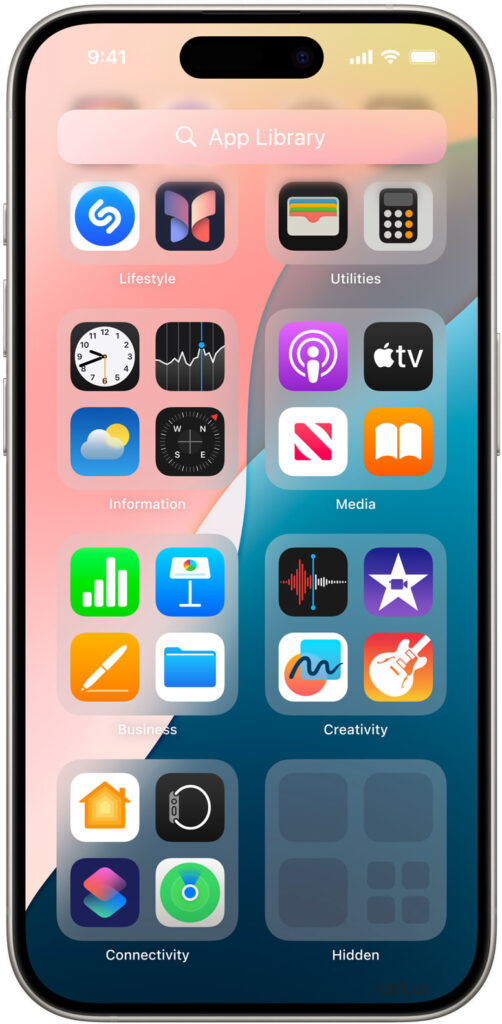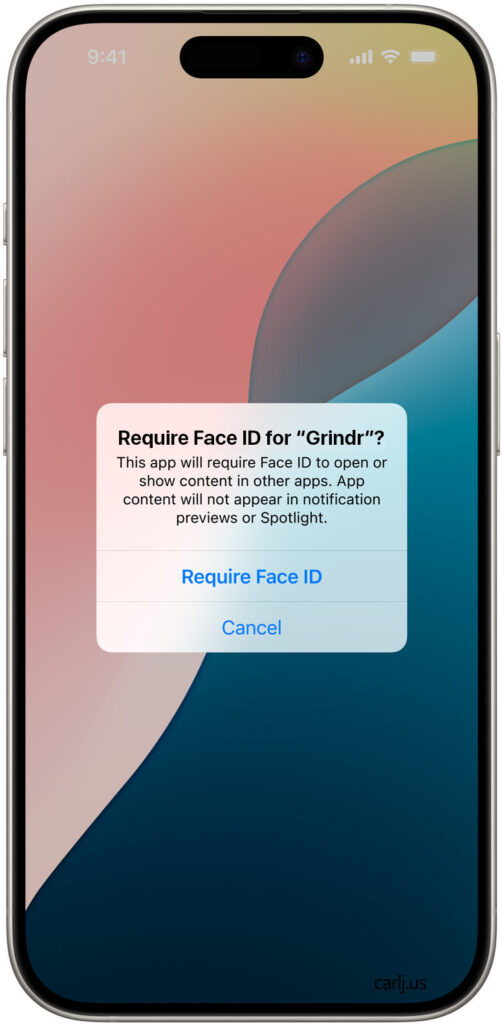When Apple unveiled its new hidden app feature for iOS 18 at the Worldwide Developers Conference, much of the initial buzz focused on an unintended consequence: the potential for these tools to enable cheating in relationships. Social media lit up with hot takes on how the ability to lock and hide individual apps would make it easier than ever for unfaithful partners to cover their tracks.
But amid the fuss over infidelity, a more serious implication of Apple’s announcement has been largely overlooked – the life-saving potential of these features for LGBTQ individuals in countries where homophobia is rampant and same-sex relationships are criminalized. For a gay person in one of these areas, the ability to hide a dating app on their phone isn’t about concealing a secret partner, it’s about staying safe and avoiding persecution.
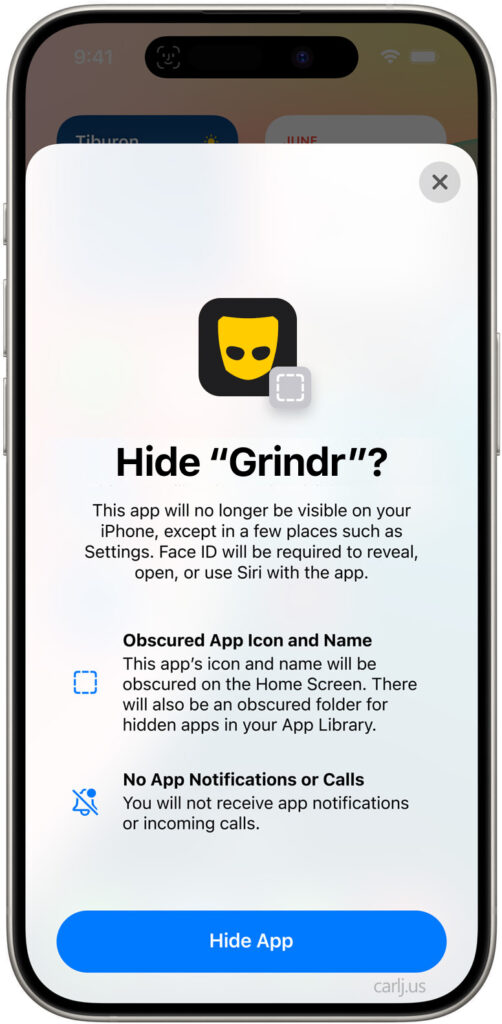
This isn’t a hypothetical concern. In recent years, there have been numerous reports of authorities in homophobic countries using gay dating apps like Grindr to entrap, harass, and even prosecute LGBTQ individuals. Tales can be found like this man in Egypt, lured in an beaten by the police, arrested and sentenced to a year in prison for “debauchery.” He’s far from alone; activists have documented over 230 LGBTQ-related arrests in Egypt from 2013 to 2017.
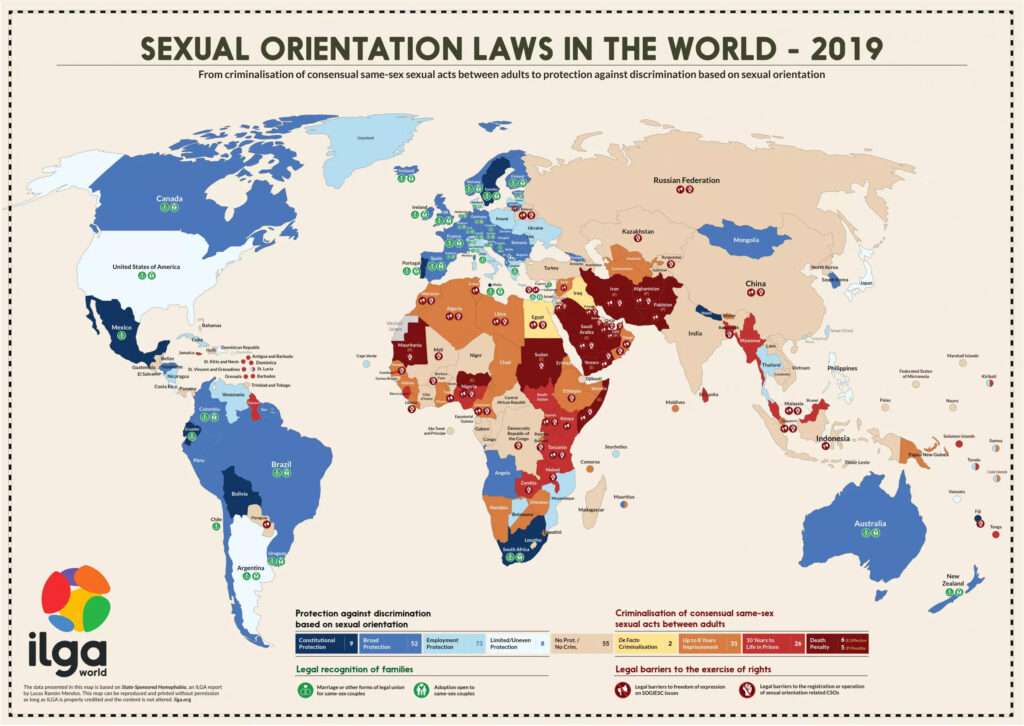
Facing these grave threats, gay dating apps have attempted to implement safeguards for users in high-risk countries. Grindr, for example, hides users’ distance from others by default in countries known to have “a history of violence against the gay community.” The app also introduced a feature allowing users to change its iconic orange mask icon to a more discreet blue veil, to avoid drawing unwanted attention (also implemented in Scruff).
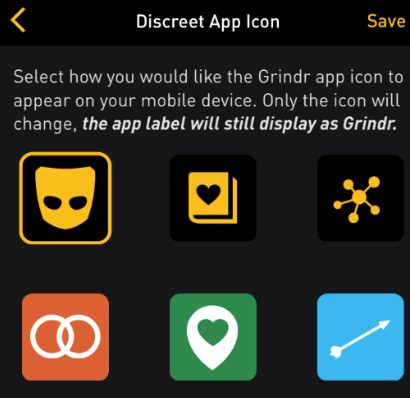
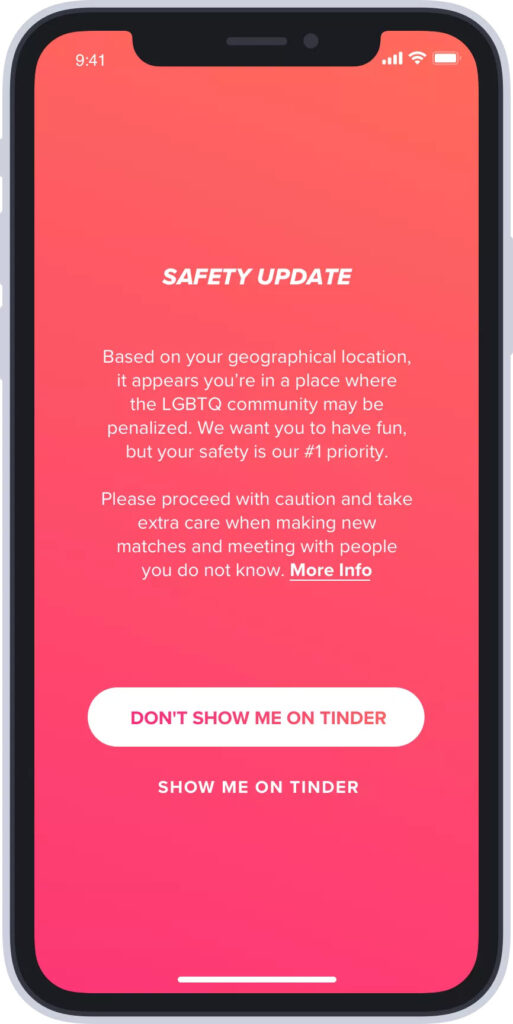
While important, these app-level measures only go so far. A user’s phone itself can still betray them; a nosy family member, employer, or police officer who demands to inspect the device would see the Grindr app right there on the home screen, even if its icon is disguised. That’s where Apple’s iOS-level protections come in.
Even before the newly announced features, Apple had taken significant steps to safeguard user data on the iPhone. The company famously faced off with the FBI in 2016 to defend its use of encryption, a technology that can prevent authorities from accessing sensitive information on the device. Tim Cook saying: “We still live in a world where all people are not treated equally… information can make the difference between life and death.” More recently, Apple gave users the option to exclude specific apps from system-wide search results, an important first line of defense.
But iOS 18 takes things to the next level by allowing users to completely lock and hide individual apps. By encrypting the phone, removing it from search and notifications, and even concealing its very presence on the phone, Apple is providing a powerful tools for LGBTQ individuals to control what others can see about their digital lives.
Yes, it’s true that bad actors could use this to deceive their partners and conceal infidelity. Tools that can be used for good, like safeguarding vulnerable LGBTQ individuals, can also be used for deception and betrayal. It’s a classic “dual use” dilemma in technology.
But on balance, the potential for these features to literally save lives by protecting LGBTQ people in hostile environments far outweighs the risk of enabling cheaters. Protecting human rights and physical safety must take precedence over policing fidelity in individual relationships.
Moreover, those determined to cheat have always had options to cover their tracks. Apple’s new feature doesn’t create the possibility of infidelity where it didn’t previously exist; they simply put powerful privacy tools in the hands of all users. Ultimately by developing features that can help protect its most vulnerable users, Apple is taking a principled stand for safety, privacy, and empowerment.
